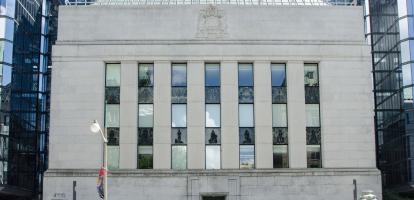Canada’s process for reviewing foreign investments is too opaque, and protects neither our economic nor our national-security interests.
Ottawa should therefore follow Washington’s lead and create a system wherein certain transactions must be cleared before an investment is ever made.
The timing couldn’t be better: Earlier this month, Innovation, Science and Industry Minister François-Philippe Champagne announced a review of Canadian’s Competition Act. The minister should leverage this moment to create a tailor-made solution for foreign investment reviews, as well.
Rather than prioritizing national security, the current regime is more concerned with investors. Canadian companies and their advisers would all benefit from a more transparent system with clearer rules and reasons for decisions.
But before we discuss the solution, let’s look at how we got here. Canada has had a law for reviewing foreign investments on the books since 1985: The Investment Canada Act (ICA), which allows for the review of economic impacts of proposed foreign investments in Canada.
In 2009, Parliament broadened the scope of the ICA to include powers to review national security. With a receding of globalization and a retrenchment of manufacturing in North America, the ICA’s approach to national-security reviews must be carefully reconsidered.
A glaring problem with the ICA is that it allows foreign investors to notify the government of their proposed investments — whether an acquisition or a new business — after those investments are made, rather than requiring a pre-clearance of those that might affect national security.
But this is backward, both from a business-risk and a national-security risk analysis. If an investment raises genuine national-security risks, it should be reviewed before any harm comes to the economy or Canada’s security.
The United States has recognized this, and, in 2020, it became mandatory for foreign investors to submit pre-closing filings for certain transactions involving technology, infrastructure, and data businesses. Canada should align its filing requirements with the Americans’.
The changes south of the border also emphasize that — aside from ownership of a business — control of a company’s technology assets can raise national-security concerns. This understanding is missing from the ICA.
Under the current Canadian regime, foreign investors can acquire or license technology from a Canadian company without triggering notification requirements or powers of national-security review under the ICA.
This was a concern raised in the March 2021 report of Parliament’s Standing Committee on Industry, Science and Technology, but none of the committee’s recommendations has been implemented.
As Champagne reviews Canada’s Competition Act, he should also consider replacing the ICA with legislation specifically designed to address the national-security aspects of foreign investment in Canada.
Just as it might be possible to tailor and adjust an ill-fitting blazer from the 1980s, it might be a better look for Canada to craft a new one with a modern fit. In other words, it should start the legislation from scratch to fit contemporary concerns.
Starting fresh would allow Canada to reconsider its system of investment notification. Under the ICA’s current dragnet approach, there are more than 750 investment notifications per year. According to the most recent ICA annual report, of the 826 notifications that Innovation, Science and Economic Development Canada (ISED) received last year, only three per cent triggered the operation of the ICA’s national-security regime.
The author of a recent paper for the C.D. Howe Institute argued that establishing a national-security amicus would improve and streamline the foreign-investment-review process.
By making these changes and front-ending the review process, ISED’s resources would be better employed by reviewing a smaller number of notified transactions. Based on revised notification criteria, ISED would better identify the types of transactions likely to pose economic and national-security concerns. With fewer transactions to review, ISED would be able to devote more resources to each one. That’s important, because national-security reviews now take an average of 225 days each, up from 161 days just two years ago.
Similarly, ISED’s extra capacity could be used to conduct periodic post-closing reviews of businesses established by foreign investors. This is a power not currently contemplated by the ICA. The introduction of such a secondary threshold — a clearance to continue doing business in Canada — is a good example of national-security measures that don’t fit within the current ICA framework.
We invite the minister to broaden the review of Canada’s economic laws, including the ICA, to ensure that Canada’s national-security and economic interests are balanced, and that the government’s resources are well deployed to both protect our interests and spur growth.
Joshua Krane is a partner at McMillan LLP.





